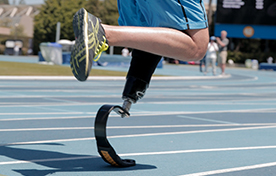The Observant Caregiver
Being a caregiver means being available to assist and care for someone who needs help. Many people, including seniors, need help with daily living activities, but they don’t want to be completely dependent. An observant caregiver can help someone feel more independent by observing exactly what that person needs help with and finding a solution. Even if there seem to be many problems at once, it’s best to focus on fixing one thing at a time.
It may seem obvious, but sometimes the easiest way to find out what someone is frustrated with is to ask. For example, a caregiver might notice that a person seems hesitant when walking, but the problem might be with eyesight rather than physical mobility.
Try to find patterns in the person’s ability to do tasks such as:
- Using the telephone
- Bending over or reaching up
- Grasping objects or manipulating small devices
- Standing/sitting
- Going up/down stairs or getting in/ out of a car
- Performing personal hygiene tasks or going to the restroom
- Remembering to take medications.
Many seniors understandably wish to live out their lives in their own homes. Of course, this is not always practical, depending on the layout of a home and its distance from shops and services. Health problems and frailty from age can also make it harder to live on one’s own. As a caregiver who supports someone’s decision to stay in the home as long as possible, you can do several things to help that person remain independent longer.
- Limit the need to use stairs as much as possible
- Move major appliances such as the washer and dryer from the basement to the main floor.
- Put often-used dishes and pans within easy reach.
- Remove tripping hazards such as area rugs.
- Install bright, no-skid strips on steps.
- Improve lighting throughout the home; install nightlights.
- Install grab bars in showers and tubs.Purchase clothes and shoes that are easy to put on: pull-on pants, clothes with few buttons and shoes with Velcro straps instead of laces.
- Hire home healthcare professionals to assist with morning and evening bathing and dressing.
- Hire or provide help with cleaning, shopping, cooking, transportation and lawn care.
- Sign up for home-delivered meals.
Familiarize yourself with bills and when they are due; schedule bill paying day.
Family caregivers may be used to caring for their loved one 24 hours a day, 7 days a week. They may think they are the only ones who can give full care and attention, but they also may become too tired to stay observant and effective. But how do you know when you’ve reached that point? When is it important to call a professional?
A trained geriatric professional can come to the home and give a formal assessment and give advice on how to handle specific situations. The following checklist is a guide to help determine if it’s time to bring in a professional.
- Has the person lost weight?
- Does he or she appear poorly groomed – unshaven, hair dirty or unkempt, or wearing dirty clothes?
- Does the person’s breath smell or does he or she have body odor?
- Is there spoiled food in the cabinets or the refrigerator?
- Are dishes piled in the sink, carpets dirty, furniture dusty?
- Is the house cluttered and the yard a mess?
- Has the person lost interest in going out or participating in activities he or she once enjoyed?
- Does the person seem unsteady or afraid to use stairs?
- Have you noticed changes in the person’s normal behavior or routine?
A geriatric professional might recommend hiring a geriatric care manager to assist the family caregiver. A geriatric care manager is a licensed professional who is trained to handle a range of services. A geriatric care manager should perform tasks such as:
- Performing a medical assessment, including physical and mental health
- Talking with the elderly client about his or her preferences, as well as (separately) with family members
- Meeting with physicians
- Learning and understanding family members and support systems
- Reviewing finances, legal affairs and insurance
- Making referrals to appropriate experts such as lawyers, accountants, physicians and psychotherapists
- Explaining Medicare, Medicaid and other insurance programs
- Coordinating medical care among doctors with different specialties
- Recommending appropriate living facilities
- Negotiating financial arrangements with living facilities
- Developing an overall care plan
- Recommending the best options based on the complete picture
- Helping family members understand and accept the situation and their options
- Helping family members reach consensus about disagreements
- Monitoring in-home care
- Coordinating a move to new living arrangements
- Making arrangements with facilities
- Providing ongoing consultation and support.
Verbal communication is not always possible between caregiver and patient, but when a caregiver is observant, he or she can begin to see things from the other person’s perspective. Being an observant caregiver doesn’t just mean tending to someone’s every need. Sometimes it’s about finding out what can make life a little easier by making small adjustments. For example, improving the lighting in the home or adding grab bars in key locations might go a long way toward preventing falls and improving mobility around the house. Other times, being observant may involve making big changes, such as hiring someone to help out. It’s just as important to be observant of your own needs as a caregiver, not just the needs of the person being cared for.
Disclaimer: The following information is provided and owned by the Amputation Coalition of America and was previously published on the website http://www.amputee-coalition.org or the Coalitions Newsletter, inMotion.








